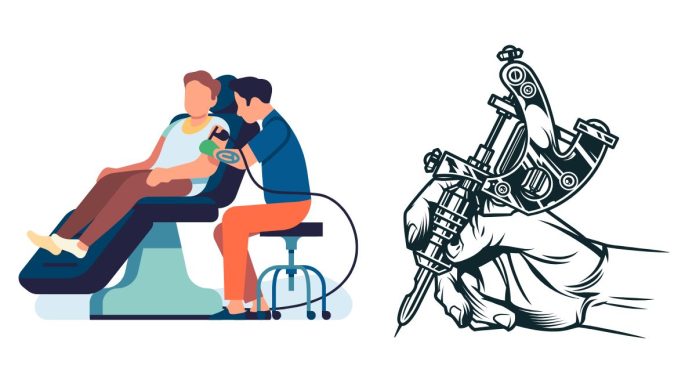The income of tattoo artists can vary significantly depending on several factors, including experience, location, reputation, and whether they work at a shop or are independent. Here’s a general breakdown:
1. Tattoo Apprentice
As an apprentice, you likely won’t be making much money initially. Tattoo apprenticeships typically involve working for free or for a small stipend in exchange for training and learning the craft. This phase can last anywhere from 1 to 3 years, and income may come from small tips or side work outside of the apprenticeship, but it’s not a primary source of income.
2. Entry-Level Tattoo Artist
Once you’ve completed your apprenticeship and started tattooing professionally, your income will depend largely on how many clients you attract and your pricing. In the beginning, entry-level tattoo artists might earn between $30,000 to $40,000 per year on average. As they build their portfolio and client base, this can increase.
3. Experienced Tattoo Artist
As a tattoo artist with more experience and a growing reputation, you can charge more for your work. Experienced artists can make $50,000 to $100,000 per year or more, depending on their workload, the shop they work at, and their skill level. Many tattoo artists earn money on a commission-based system, where they take a percentage of the price paid by the customer, which can range from 40% to 70%.
4. High-End Tattoo Artists
Highly skilled, well-known tattoo artists, especially those with a strong reputation or celebrity clientele, can earn significantly more. These artists can charge $200 to $500 per hour or more for their work, depending on their fame and skill set. Their annual income could exceed $100,000, with top-tier artists earning several hundred thousand dollars or more annually.
5. Factors That Influence Earnings
- Location: Tattoo artists in large cities or tourist-heavy areas typically earn more because of higher demand, but the cost of living is also higher.
- Shop vs. Independent: Tattoo artists working in well-established shops may earn a steady income but have to share a percentage of their earnings with the shop owner. Independent artists (or those who rent booth space) have the potential to earn more, but they also bear the costs of running their own business.
- Specialization: Artists who specialize in certain styles (like realism, blackwork, or custom designs) and gain a reputation in those areas can charge higher rates.
Conclusion
Tattoo artist salaries vary widely based on experience, location, and reputation. While apprentices earn very little, entry-level tattoo artists can start around $30,000 annually, and experienced artists can earn $50,000 to $100,000 or more. For well-known, high-end tattoo artists, earnings can exceed $100,000 annually, with some artists making several times that amount.


